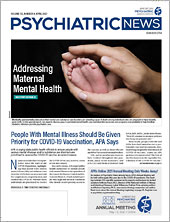Following the murder of George Floyd—witnessed by millions of Americans in a city assumed to have a “progressive” stance on racial relations—America has struggled to address centuries of prejudice. In 1790 George Washington wrote of prejudice in a letter to the Hebrew congregation in Newport, R.I.: “The Government of the United States … gives to bigotry no sanctions, to persecution no assistance. …” Washington was reflecting the sentiment of White men of that era, but our government and powerful agencies in our society did indeed operate with prejudice. It took the murder of George Floyd for our country to fully begin to assess the silent dark parts of our history.
In all aspects of our lives, this process is occurring. In understanding our history, we must come to terms that the men who founded our country and wrote “that all men are created equal” did not live by that creed. Owning slaves was an accepted part of their lives. Women could not vote. After 240 years, our nation now has the first American Indian as a member of our presidential cabinet; 100 years after women could vote, we now have a woman vice president.
As a nation founded by immigrants, we have frequently created barriers to keep them from entering our country. Obstacles were constructed to block people who did not look like or prayed as those who were already here. Until recently, we did not allow Muslim immigrants into the country. A hundred years ago, we limited the number of southern Europeans who could enter. Special laws existed that kept Asians out of the country.
Today we have a focus on rooting out racial prejudice and discrimination. Our universities and our professional associations are all involved. Our own APA is participating in the process in reviewing, understanding, and acknowledging its role in perpetuating racial prejudice. But the issue we address is not just understanding the history of American prejudice or in rooting it out where it still exists and righting past wrongs. We must strive to understand what creates prejudice. Why does it exist in some form in nearly every country in the world? It may be based on race, religion, nationality, gender, or the street where you live.
Understanding the variants of prejudice is an area to which psychiatrists can contribute. In the 1930s Freud and Einstein exchanged a series of letters dealing with Einstein’s concerns about war. Freud’s responses can be understood today as addressing the psychology of prejudice. As psychiatrists we must use our understanding of the complexities of human psychology and the forces that impact on behavior to appreciate what leads to prejudice, how to limit its formation, and how then to eradicate it when it appears. Prejudice is not an abstract thought but a human feeling that leads to destructive actions against other humans.
Perhaps we would be more effective in combatting prejudice if we conceptualized it as a virus. It is spread from one person to another. Some infections lead to death, and some appear to be asymptomatic but still spread the disease. Vaccinations to halt the spread of this virus are more demanding than a shot in the arm. They entail constant vigilance against actions that demean one person or one group for any characteristics that are different or perceived to be different. We must always be prepared to forcefully act to stop the spread of this virus. Social distancing and isolation will be but one of our responses against agents of prejudice. We will not eradicate this virus. We must be prepared to treat every outbreak vigorously. ■
SIDNEY WEISSMAN, M.D.
Chicago, Ill.
